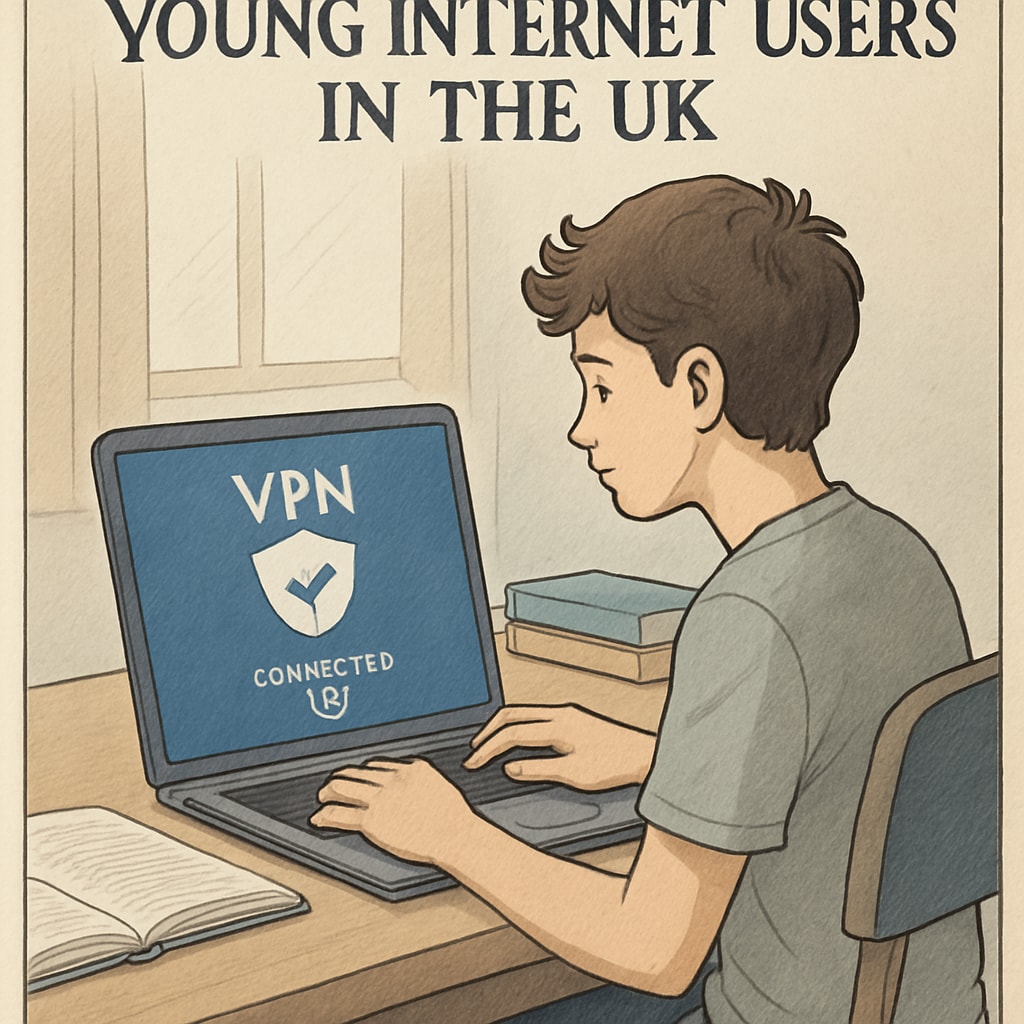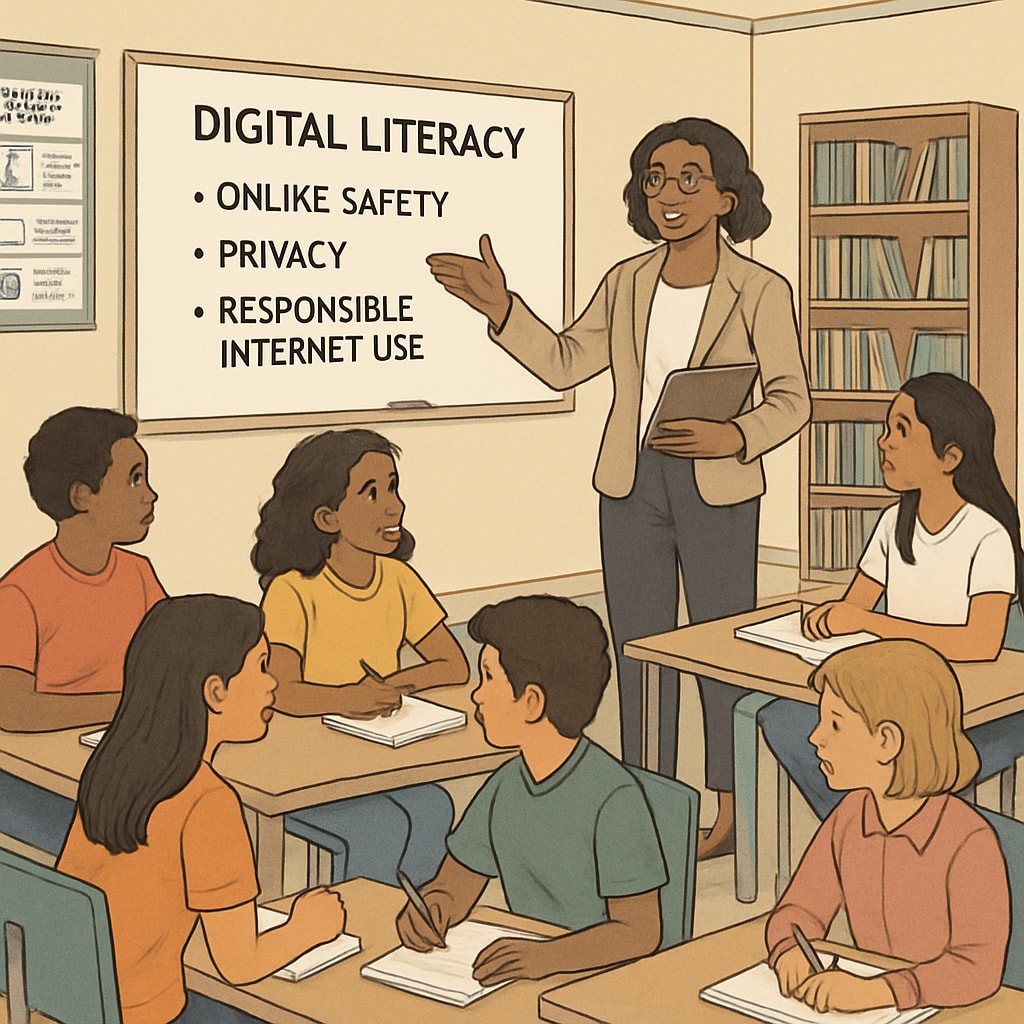The UK’s recently introduced age verification laws, designed to shield young people from inappropriate content, have inadvertently caused a surge in VPN (Virtual Private Network) usage. While these laws aim to secure safer online environments, they reveal a critical flaw: solely technical restrictions cannot replace the importance of comprehensive digital literacy education. This article examines the unexpected consequences of these laws, the role of VPNs, and how schools and families can leverage this moment to foster critical thinking and self-regulation in today’s youth.
The UK Age Verification Laws: Goals and Shortcomings
Enacted to protect minors, the UK’s age verification laws require online platforms hosting adult content to verify users’ ages. This policy aims to restrict underage access to harmful material, emphasizing the government’s commitment to online safety. However, critics argue that these measures often overreach, risking user privacy and potentially driving tech-savvy youth to seek alternative solutions, like VPNs.
VPNs, which allow users to mask their location and bypass geographic restrictions, have seen a marked increase in usage among UK teens. According to BBC Technology, VPN downloads surged following the legislation’s rollout, signaling a growing trend of circumventing online controls. This raises a crucial question: Does this approach truly protect young users, or does it encourage them to explore loopholes without understanding the risks involved?

VPN Usage: A Double-Edged Sword
While VPNs are a legitimate tool for enhancing online privacy, their misuse can expose users to new risks. For instance, free or unverified VPN services might compromise data security, inadvertently exposing young users to cyber threats. Moreover, relying on VPNs to bypass restrictions teaches teens to evade rules rather than understand their purpose, undermining the very foundation of responsible digital behavior.
In addition, this trend highlights a broader challenge: the gap between regulatory intentions and real-world behaviors. Policymakers may underestimate the resourcefulness of tech-savvy youth, who often outpace the systems designed to monitor them. Without proper education on the ethical and practical implications of digital tools, these quick fixes can create long-term vulnerabilities.
Beyond Regulation: Building Digital Literacy
Instead of solely focusing on enforcement, the rise in VPN usage should prompt a re-evaluation of how digital education is approached. Schools and families can play a pivotal role in addressing this issue by fostering critical digital skills among teens. The following steps can help:
- Encourage Open Dialogue: Create safe spaces for teens to discuss their online experiences, including their use of VPNs and the reasons behind it.
- Teach Cybersecurity Basics: Equip students with knowledge about online privacy, secure browsing, and the risks of unverified VPNs.
- Promote Ethical Thinking: Discuss the ethical implications of bypassing online restrictions and the importance of respecting digital boundaries.
- Involve Parents: Provide resources for parents to understand digital tools and foster responsible online habits at home.
Such initiatives can transform the current challenge into an educational opportunity, preparing teens to navigate the digital world with confidence and integrity.

Collaborative Solutions for a Better Digital Future
To address the complexities of online safety, collaboration between policymakers, educators, and families is essential. Policymakers must ensure that regulations are accompanied by educational programs, while educators should integrate digital literacy into curricula. Families, on the other hand, can reinforce these lessons at home, encouraging teens to approach the internet responsibly.
For example, initiatives similar to Finland’s comprehensive digital education model—where students learn not only technical skills but also critical thinking and ethical decision-making—could be adapted for the UK. Such programs emphasize the importance of understanding the “why” behind rules, fostering a generation of informed digital citizens.
Conclusion: Turning Challenges into Opportunities
The UK’s age verification laws, while well-intentioned, highlight the limitations of relying solely on technical solutions to protect young users. The rise in VPN usage underscores the need for a broader approach that combines regulation with education. By empowering teens with critical thinking skills and ethical awareness, we can move beyond digital restrictions and create a safer, more informed online environment for all.
Ultimately, the goal should not be to build higher digital walls but to equip young users with the tools to navigate the vast online landscape responsibly and independently.
Readability guidance: This article uses short paragraphs, clear subheadings, and bullet points to enhance comprehension. It balances technical terms with practical examples, ensuring accessibility for a broad audience.


